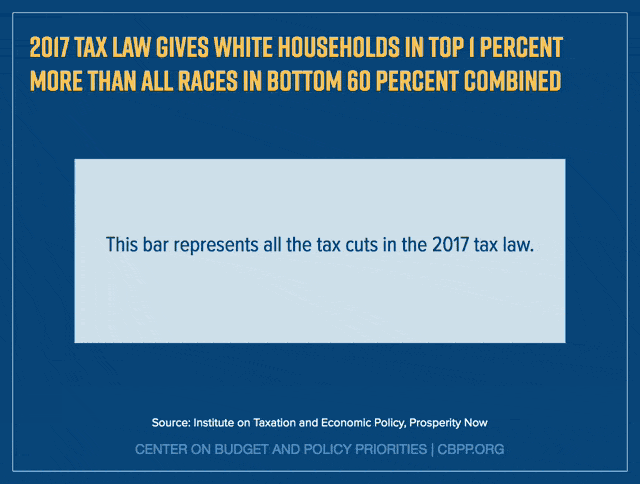BEYOND THE NUMBERS
The federal tax code can affect racial disparities in both income and wealth and, while the current code narrows those disparities somewhat, the 2017 tax law marked a step in the wrong direction, our new report explains (see graphic). Certain types of federal tax reforms, however, would advance racial equity, the report shows.
To be sure, the federal tax code doesn’t explicitly benefit one race over another. Nevertheless, historical racism and continuing racial prejudice and discrimination, through both public policies and private acts, have helped shape factors — such as income, wealth, and consumption — that determine households’ tax liability. Racial barriers to economic opportunity have profoundly affected today’s income and wealth distribution, in which households of color are overrepresented at the bottom while non-Hispanic white households are heavily overrepresented at the top.
Thus, the tax code, some of its specific provisions, and the way the federal government administers and enforces it can affect different races and ethnicities in widely disparate ways. Changes in tax policy and administration can widen or narrow racial disparities. Moreover, racism helped shape the tax code’s historical development in ways that continue to influence tax policy today.
Tax policy changes that would advance racial equity include:
- Raising significantly more revenues in a progressive manner and investing them in ways that improve economic opportunity and reduce racial disparities;
- Strengthening tax provisions that are efficient, progressive, and inclusive while overhauling regressive or unproductive tax breaks; and
- Administering the tax code more fairly.

